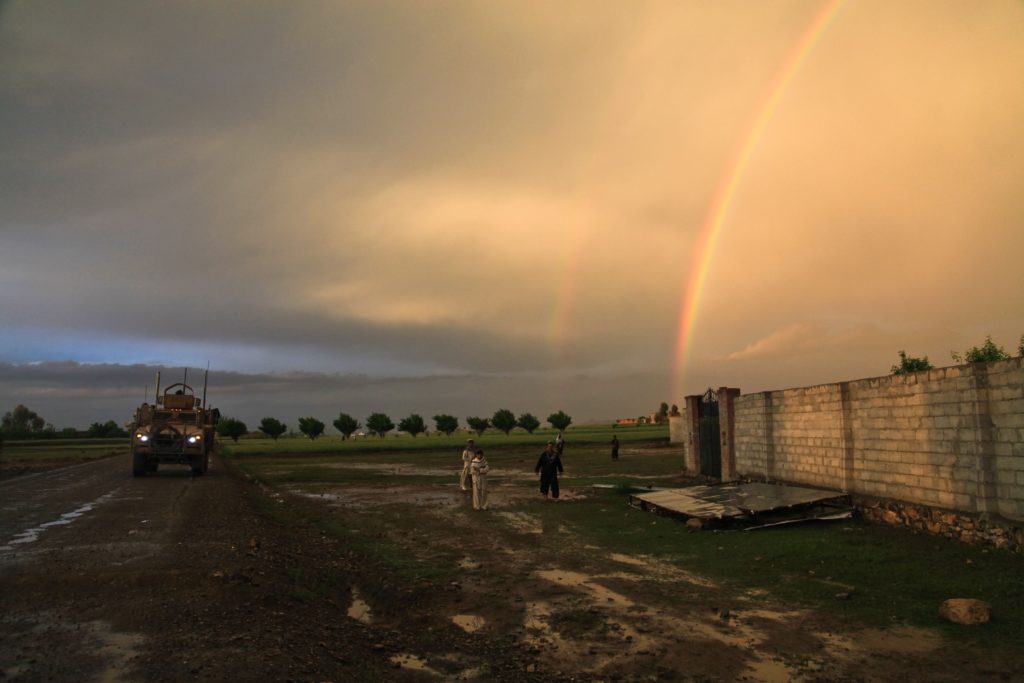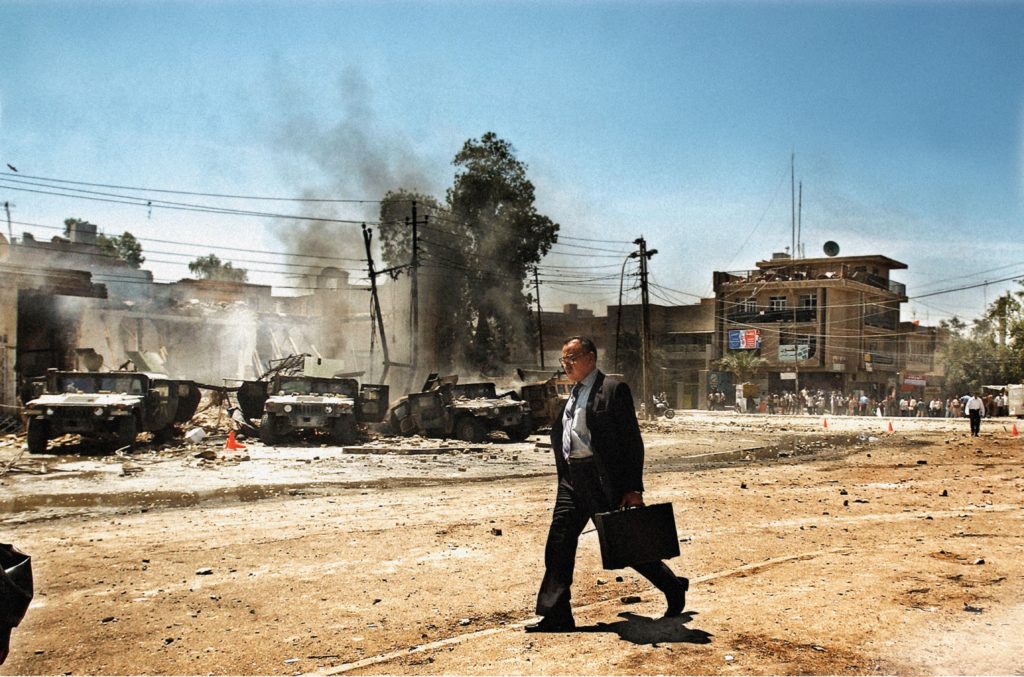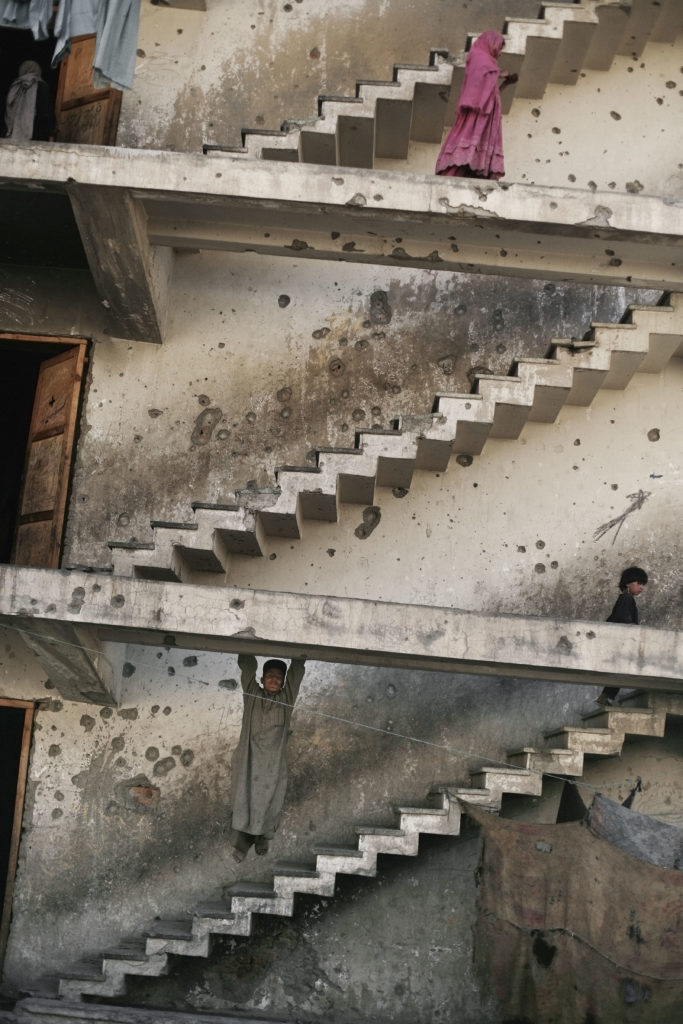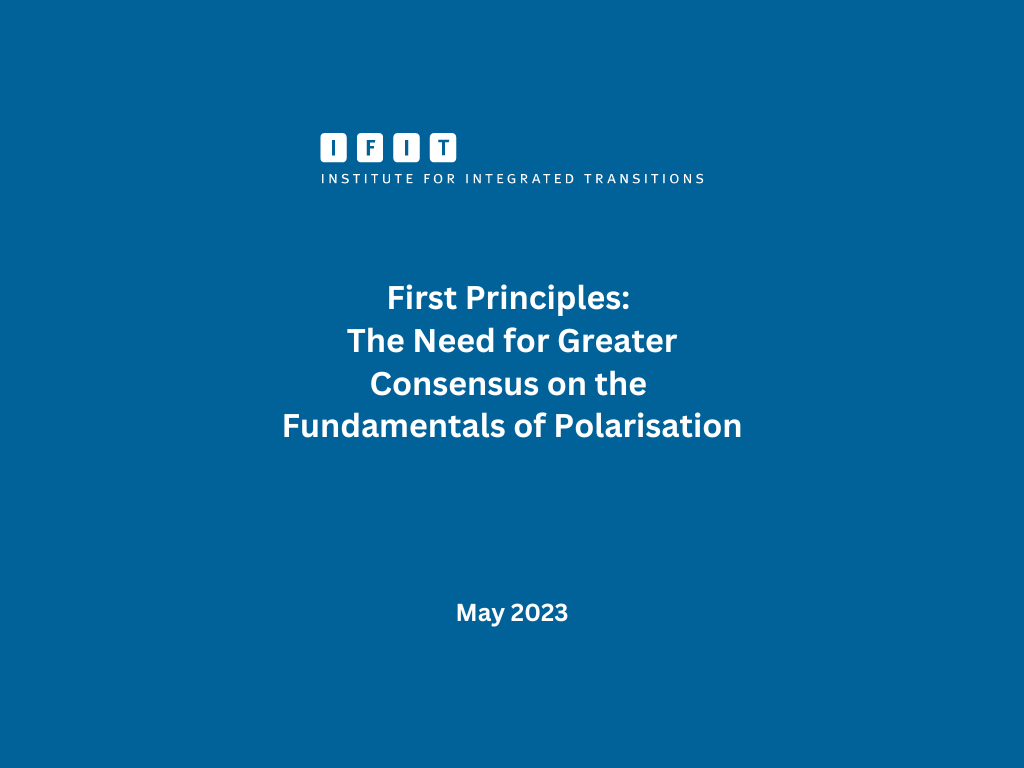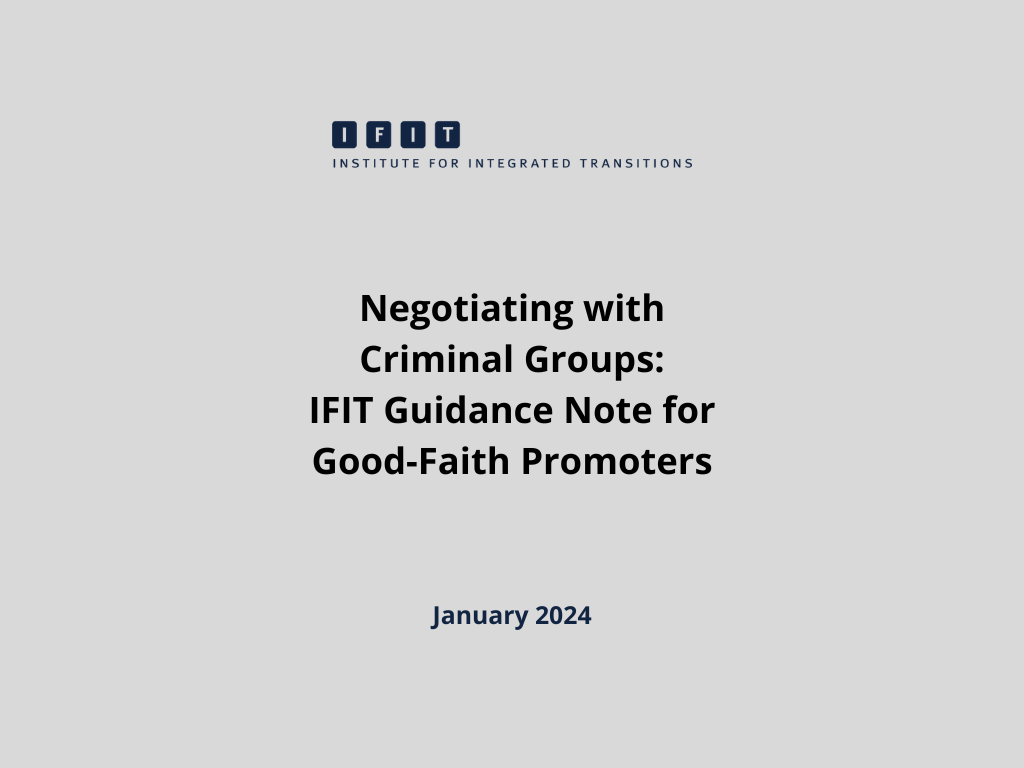Expert Team: International Advisory Council
Carne Ross is the Founder and former Executive Director of Independent Diplomat (ID). Ross founded ID in 2004 to address the “diplomatic deficit” created by a diplomatic system that all too often excludes or marginalises many governments and groups most affected by the decisions made within it, and usually those who are suffering the most. As Executive Director of ID, he played an integral role in each client project and in guiding the organisation.
Carne has over fifteen years of diplomatic experience in the British Foreign Office and United Nations, working on a wide range of issues and regions including Europe, the Middle East, Africa, the global environment, terrorism and post-conflict reconstruction. He is experienced in bilateral and multilateral diplomacy and familiar with major international institutions, in particular the United Nations.
Between 1997-1998, Ross served as the speechwriter to the British Foreign Secretary, preparing speeches on all areas of British foreign policy. He then spent four and a half years in the UK delegation on the UN Security Council, where he was the delegation’s Middle East “expert” (with the rank of First Secretary). His work included the drafting and negotiation of several important Security Council resolutions, such as SCR 1284 which rewrote the Council’s Iraq policy and established UNMOVIC, the weapons inspection body. He also negotiated for the UK the resolution establishing the International Security Assistance Force (ISAF) in Afghanistan and the Council’s resolution of 12 September 2001 condemning the attacks of the day before.
Ross resigned from the British Foreign Office in 2004, after giving then-secret evidence to an official inquiry into the use of intelligence on WMD in advance of the 2003 Iraq war. He has also subsequently testified to the Chilcot Inquiry investigating the lead-up to and conduct of that war.
Carne Ross is a trained negotiator and economist. He is also a playwright (“The Fox” enjoyed a short run in New York in early 2001) and author. His latest book, The Leaderless Revolution, was published in 2011 by Simon & Schuster (UK) and Blue Rider Press, an imprint of Penguin (US). His first book Independent Diplomat: Dispatches from an Unaccountable Elite was published in 2007 by Hurst & Co. (UK) and Cornell University Press (US).
You may also be interested in
Ahmed Rashid is one of the world’s foremost experts on Afghanistan, Pakistan, Central Asia and the Taliban. He is the author of many influential books on the region, including the bestselling Taliban: Militant Islam, Oil and Fundamentalism in Central Asia. Published prior to the September 11, 2001, terror attacks, Taliban became a critical guide to understanding the Taliban in their wake and was translated into more than 40 languages. He has also written two books on Central Asia: The Resurgence of Central Asia and Jihad: The Rise of Militant Islam in Central Asia. Following Taliban, he completed a trilogy of books on Afghanistan, Pakistan and the US involvement in the region with Descent Into Chaos: The United States and the Failure of Nation Building in Pakistan, Afghanistan, and Central Asia and most recently, Pakistan on the Brink: The Future of Pakistan, Afghanistan and the West.
He is a champion of local media development and donated a third of the profits from his book earnings to create the Open Media Fund for Afghanistan. He also enlisted the Open Society Institute, AOL Time Warner Foundation, and Internews Network to provide financial support for local Afghan journalists.
Rashid has been covering the wars in Afghanistan and conflicts in Central Asia and Pakistan since 1979. He currently writes regularly for the Financial Times, the New York Times, the New York Review of Books, Britain’s Spectator magazine, Spain’s El Mundo, BBC Online and several Pakistani publications. Previously, he was the Afghanistan and Central Asia correspondent for the Far Eastern Economic Review (1982-2004), a correspondent for The Independent (1986-1992) and The Daily Telegraph (1992-2008). Foreign Policy magazine chose him as one of the world’s most important 100 Global Thinkers in 2009 and 2010.
Rashid is a member of the Advisory Board of Eurasia Net of the Soros Foundation, a scholar of the Davos World Economic Forum and a member of the Advisory Committee of the Asia division for Human Rights Watch. In 2004, he was appointed to the Board of Advisers of the International Committee of the Red Cross in Geneva, and in December 2009, he was appointed a member of the board of New York’s Committee to Protect Journalists. A former Visiting Scholar at the Columbia University School of Journalism. Rashid has received several international awards for his work, including the Nisar Osmani Courage in Journalism Award and Spain’s prestigious Casa Asia prize.
You may also be interested in
Philip McDonagh is Director of the Centre for Religion, Human Values, and International Relations at Dublin City University. He is also Distinguished Global Fellow at the Princeton-based Centre of Theological Inquiry.
In Ireland’s Department of Foreign Affairs, as Political Counsellor in London, Philip played a significant part in the Northern Ireland peace process in the build-up to the Good Friday Agreement. He later served as Head of Mission in India (accredited also to Sri Lanka, Nepal, and Bangladesh), the Holy See, Finland, Russia (and the five Central Asian states), and the OSCE. As a serving diplomat, and since retiring in 2017, Philip has been closely involved in bringing lessons from the Northern Ireland peace process to other situations, including Jammu and Kashmir (a joint Irish-British initiative), Sri Lanka (another Irish-British initiative, with the participation of John Hume), the Israeli-Palestinian conflict, the ‘protracted conflicts’ of concern to the OSCE, and the situation on the Korean peninsula.
Philip has published poetry and works for the theatre, including The Song the Oriole Sang (Dedalus Press, Dublin, 2010) and Gondla, or the Salvation of the Wolves (Arlen House, 2016 – an adaptation of Nikolay Gumilev’s verse drama). His articles have appeared in the Proceedings of the Royal Irish Academy, Poetry Ireland Review, Studies (Dublin), Doctrine and Life (Dublin), Transnational Perspectives (Geneva), India International Quarterly (New Delhi), Logos (St. Paul, Minnesota), and the Balliol College Record. He is also principal author of the OSCE Academic Network Report on ‘Religion and Security-building in an OSCE Context’ (2018). With three co-authors, he is currently completing a book on religion in global diplomacy.
Philip is a member of the Advisory Council of the Institute for Economics and Peace (Sydney) and a member of the Steering Committee of the OSCE Academic Network (Hamburg). He read Classics at Balliol College, Oxford, where he was elected President of the Oxford Union in 1972.
You may also be interested in
Dr. Frannie Léautier is Chair of the IFIT International Advisory Council.
Frannie is CEO of SouthBridge Investments. Previously she held many positions including: Senior Vice President at the African Development Bank, where she was responsible for the day to day running of the Bank and led the intense transformation effort the Bank was going through; executive director of the TBG Group; and Managing Partner of the Fezembat Group, a company she founded in 2007. Clients she served in the latter role included the Trade and Development Bank (TDB—formerly PTA Bank) where she was an Eminent Person and Special Advisor to TDB Bank Board and President, advising on strategy, investments in infrastructure and alternative finance arrangements including private equity. She also advised the chairman of OCP (the largest phosphate company in the world) in the Kingdom of Morocco.
Earlier in her career, Dr. Léautier was Chairperson and Co-Founding Partner of Mkoba Private Equity, a fund offering growth capital to small and medium enterprises in Africa. She also spent fifteen years at the World Bank, 11 of which in executive roles. These included World Bank Vice President and Chief of Staff to the President of the World Bank. She was also Executive Secretary of the African Capacity Building Foundation (ACBF) where she led the effort of transforming the Foundation and orienting it towards the new sources of funding capacity building, public goods efforts, and philanthropic activities.
She is experienced with Executive and non-Executive roles on Boards having chaired the AfDB Board, and through holding wide ranging Board Director positions including Vice Chair TDB Bank; Treasurer and Chair of Risk and Audit Committee African Economic Research Consortium (AERC); Founding Board Member Nelson Mandela Institute for Science & Technology; Founding Member Editorial Board of the Journal of African Trade (JAT); Founding Board Member UONGOZI Institute; Founding Board Member of the Journal of Infrastructure Systems; and Advisory Board Member of the Institute of Security Studies (ISS). She recently joined the UN foundation board. She chairs the environment, social and governance (ESG) committee of Orca Explorations, a natural gas company operating in Tanzania, and listed on the Toronto Exchange.
Dr. Léautier served on Visiting Committees at the MIT Corporation, was a Trustee at the King Baudouin Foundation USA (KBFUS) and served on the Advisory Board of Women’s World Banking. She served as Co-Chair for World Economic Forum (WEF) Africa and is a member of the board of the WEF ́s regional strategy group (RSG) for Africa. She is an active member of the WEF Global Agenda Councils and was Co-chair of the Global Future Council on the Future of Economic Progress. Another of her roles with the WEF was as a member of the Core Working Group on the Digital Economy Research Agenda of the WEForum.
Dr. Léautier has a masters and doctorate from the Massachusetts Institute of Technology (MIT) and a Bachelor of Science in Civil Engineering from University of Dar es Salaam. She graduated from Harvard University’s Executive Program. She is a recipient of many awards including Best Manager at the World Bank, an honorary Doctor of Law from Lancaster University in the UK in recognition of her work in infrastructure, and an honorary doctorate in Humane Letters from North Central College in recognition of her contribution to Africa. Dr. Léautier received the title of Queen of Development for the Agona area in Ghana in 2012. She has featured several times in the list of the most influential people in Africa. She held the position of Distinguished Professor at Sciences Po Paris for five years, where she still teaches a graduate course on Leadership in a Globalized World. She is well published, including three acclaimed books: Leadership in a Globalized World; Cities and Spaces of Leadership; and Cities in a Globalized World.
You may also be interested in
Melanie Cohen Greenberg is the Managing Director, Peacebuilding, at Humanity United. Previously she was President and CEO of the Alliance for Peacebuilding. Before that, she was the President and Founder of the Cypress Fund for Peace and Security, a foundation making grants in the areas of peacebuilding and nuclear nonproliferation. From 2003–2004, she was a Visiting Scholar at the Johns Hopkins School for Advanced International Studies, focusing on issues of justice in post-conflict peacebuilding. From 2000–2002, Ms. Greenberg was Director of the Conflict Resolution Program at the William and Flora Hewlett Foundation. She previously served as Associate Director of the Stanford Center for International Security and Cooperation, and Deputy Director of the Stanford Center on Conflict and Negotiation. In her work on international conflict resolution, Ms. Greenberg has helped design and facilitate public peace processes in the Middle East, Northern Ireland, and the Caucasus. She has taught advanced courses in international conflict resolution, multi-party conflict resolution and negotiation at Stanford Law School and Georgetown University Law Center and is currently an adjunct faculty member at the Elliott School of George Washington University. She was lead editor and chapter author of the volume Words over War: Mediation and Arbitration to Prevent Deadly Conflict (Rowman & Littlefield, 2000).
Ms. Greenberg is a frequent writer, lecturer, teacher and trainer in a broad range of areas related to international law, international security, and peacebuilding. In her training, she has led courses for Congressional staff, scientists at the National Institutes of Health, international lawyers, business executives, and graduate students from around the world. Before beginning her work in international peacebuilding, Ms. Greenberg practiced as a bankruptcy lawyer at Weil, Gotshal & Manges in Houston. Ms. Greenberg serves on a number of boards of peace and security organisations. She holds an AB from Harvard, and a JD from Stanford Law School. She lives in Washington, DC with her husband and college age children.
You may also be interested in
Professor the Hon Gareth Evans AO QC is Distinguished Honorary Professor at the Australian National University, where he was Chancellor from 2010-19, and President Emeritus of the International Crisis Group, the independent global conflict prevention and resolution organisation which he led from 2000 to 2009.
He previously spent 21 years in Australian politics, thirteen of them as a Cabinet Minister. As Foreign Minister (1988-96) he was best known internationally for his roles in developing the UN peace plan for Cambodia, concluding the Chemical Weapons Convention, and initiating new Asia Pacific regional economic and security architecture. He has written or edited nine books – most recently The Responsibility to Protect: Ending Mass Atrocity Crimes Once and for All, published by the Brookings Institution in 2008 – and has published over 100 journal articles and chapters on foreign relations, human rights, and legal and constitutional reform.
He has co-chaired two major International Commissions, on Intervention and State Sovereignty (2000-01), and Nuclear Non-Proliferation and Disarmament (2008-10), whose report Eliminating Nuclear Threats was published in December 2009. He was a member of the UN Secretary-General’s High Level Panel on Threats, Challenges and Change (2004), the Blix Commission on Weapons of Mass Destruction (2006), the Zedillo Commission of Eminent Persons on The Role of the IAEA to 2020 and Beyond (2008) and the UN Secretary-General’s Advisory Committee on Genocide Prevention. He is Co-Chair of the International Advisory Board of the Global Centre for the Responsibility to Protect.
In May 2010 Gareth Evans was awarded the 2010 Franklin and Eleanor Roosevelt Institute Four Freedoms Award for Freedom from Fear, for his pioneering work on the Responsibility to Protect concept, and his contributions to conflict prevention and resolution, arms control and disarmament. In December 2011 Foreign Policy magazine cited him as one of the Top 100 Global Thinkers for 2011.
You may also be interested in
Sujit Choudhry practices constitutional law, in Canada and globally. He is an internationally recognized authority on comparative constitutional law. He has been an advisor to constitution building, governance, and rule of law processes for over 20 years, including in Cyprus, Egypt, Ethiopia, Jordan, Libya, Myanmar, Nepal, South Africa, Sri Lanka, Sudan, Tunisia, Ukraine, Yemen and Zimbabwe. He has lectured or spoken in three dozen countries. Choudhry has published over 100 articles, book chapters, policy manuals, reports and working papers. His edited volumes include The Oxford Handbook of the Indian Constitution (Oxford University Press, 2016), Constitution Making (Edward Elgar, 2016), Constitutional Design for Divided Societies (Oxford University Press, 2008), The Migration of Constitutional Ideas (Cambridge University Press, 2005), Territory and Power in Constitutional Transitions (Oxford University Press, 2019) and Security Sector Reform and Constitutional Transitions (Oxford University Press, 2019). Choudhry founded and directs the Center for Constitutional Transitions (CT), which generates and mobilizes knowledge in support of constitution building by assembling and leading international networks of experts to produce evidence-based policy options for decision-makers and agenda-setting research, in partnership with a global network of multilateral organizations, think tanks, and NGOs. CT has worked with over 50 experts from over 25 countries.
Choudhry is also a practicing barrister, and has a broad public law practice on questions of constitutional law, administrative law, public international law and international human rights law, in the Canadian courts, including in judicial reviews, appeals, and arbitrations. He frequently appears as counsel, including in the Supreme Court of Canada in Charkaoui (security certificates), and in Khadr 1 and Khadr 2 (Guantanamo detainees). He is currently counsel in a number of high profile constitutional challenges brought under the Canadian Charter of Rights and Freedoms, including Bakan et al. v. Canada and Cool World et al. v. Twitter, landmark cases globally on the governance of social media platforms. Choudhry was a member of the Governing Toronto Advisory Panel, which proposed major reforms to the structure of municipal government in Toronto, and sat on the Board of Directors of Legal Aid Ontario, one of the largest publicly funded legal assistance programs in the world.
Choudhry was named Practitioner of the Year by the South Asian Bar Association of Toronto in 2011. In 2015, the South Asian Bar Associations of Southern California and Northern California each awarded Choudhry the Trailblazer Award. In 2010, Choudhry received the Trudeau Fellowship. Choudhry holds law degrees from the University of Oxford (as a Rhodes Scholar), the University of Toronto, and Harvard Law School, and served as Law Clerk to Chief Justice Antonio Lamer of the Supreme Court of Canada. For 20 years, Choudhry was a full-time academic at the University of Toronto, New York University, and UC Berkeley (where he served as Dean).
You may also be interested in
John Carlin is a much-travelled journalist and author whose book Playing the Enemy: Nelson Mandela and the Game that Made a Nation, about former South African president Nelson Mandela, is the basis for the 2009 film Invictus.
Carlin began his journalism career at the Buenos Aires Herald in 1981, writing about film, football and politics. In 1982, he began a six-year stint as a foreign correspondent in Mexico and Central America working for, among others, The Times and Sunday Times, the Toronto Star, BBC, CBC, and ABC (US) before joining the staff of The Independent at the newspaper’s launch in 1986.
Carlin was The Independent‘s South Africa bureau chief from 1989–1995.In 1993, Carlin wrote “War on Peace”, a BBC documentary on the South African Third Force, his first television work.
From 1995–1998 he was the United States bureau chief for The Independent on Sunday. In 1997, Carlin wrote an article titled “A Farewell to Arms” for Wired magazine about cyberwarfare that inspired the 2007 Bruce Willis film, Live Free or Die Hard (Die Hard 4.0).
In 1998, Carlin joined El País, the world’s leading Spanish-language newspaper, where he worked as a senior international writer and football columnist until October 2017. Carlin was writer and interviewer for the Emmy-nominated 1999 documentary “The Long Walk of Nelson Mandela” for the American PBS series Frontline. He has since worked on a dozen more film documentaries.
Carlin won the 2000 Ortega y Gasset Award, Spain’s most prestigious journalism prize, for an article on immigration for El País. In 2004 he won the British Press Awards “Food and Drink Writer of the Year” prize. He has won other awards in Spain and Italy. He has written for numerous publications, including the New York Times, the Wall Street Journal, the New Republic, The Observer and the Financial Times. He now writes a weekly column on international politics for Barcelona’s La Vanguardia and Argentina’s Clarín. His latest book is a graphic novel called “Mandela and the General”. Carlin holds an MA in English Language and Literature from Oxford University.
You may also be interested in
Elisabeth Ungar Bleier is Colombian born of Austrian immigrant parents. Her academic and non-profit activities have related to strengthening democracies and democratic institutions; transparency and anti-corruption in the public and private sectors; and citizen participation and social movements.
A political scientist educated at the Universidad de los Andes in Bogotá, she has a Master´s
Degree in Legal Institutions and Sociology of Law from the University of Wisconsin in
Madison. She is the founder of Congreso Visible (Visible Congress), a watchdog organisation, and was a professor and researcher in the Department of Political Science at Universidad de los Andes from 1975 until 2009, serving as Director of the Department (1995-1996) and a board member of the university (2005-present).
For nine years, she was the Executive Director of Transparencia por Colombia, the
Colombian chapter of Transparency International (TI), later joining its global board of directors. She has also been a member of other boards, such as the World Movement for
Democracy and the Latin American and Caribbean Network for Democracy. She has been
a member of the National Anti Corruption Citizen Commission, the Regional Alliance
for Freedom of Expression and Access to Information, several watch dog NGOs
and “La Paz Querida”.
She was selected by an independent commission to be part of the Misión Electoral
Especial (Special Electoral Commission), created in compliance with the Peace
Agreement between the Colombian government and the FARC-EP.
She is the author of numerous books and articles about transparency, anti-corruption,
political reform, political parties, and congress. She is a permanent columnist of El Espectador, the second largest Colombian daily newspaper. Fluent in Spanish, English and German, and proficient in French, she is the proud mother of two wonderful young women.
You may also be interested in
Hakan Altinay is the President of the Global Civics Academy. His book, Global Civics, was published in 2011 by Brookings Press and has been translated into Arabic, Chinese, Portuguese, Russian and Spanish. Specialised in questions of constituency building and normative frameworks for enhanced global cooperation and governance, Altinay is also a non-resident Senior Fellow at the Brookings Institution; Global Ethics Fellow at the Carnegie Council for Ethics in International Affairs; and World Fellow at Yale University. In Turkey, he established the Open Society Foundation in 2001, and the European School of Politics in 2014. Altinay has published widely on global issues, including in The New York Times, International Herald Tribune, and Financial Times.
You may also be interested in
